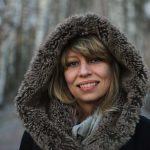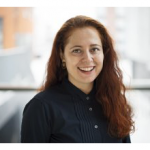Photography and the Archive Research Centre
*** CALL FOR PAPERS ***
Art and Reconciliation Sarajevo, Bosnia. June 30-July 2, 2017
Fast Forward: Women in Photography. Vilnius, Lithuania. November 3-4, 2017
—
Why Remember?
Memory and Forgetting in Times of War and Its Aftermath
3-Day Conference in Sarajevo, Bosnia, June 30 July, July 1, July 2, 2017.
Sponsored by the Photography and the Archive Research Centre (PARC) University of the Arts, London; Salem State University, Massachusetts, USA; WARM Festival, Sarajevo, Bosnia.
Keynote Speakers include
Simon Norfolk, photographer, and Vladimir Miladinović, artist.
In his book In Praise of Forgetting: Historical Memory and Its Ironies, David Rieff offers a persuasive challenge as to whether the age-long “consensus that it is moral to remember, immoral to forget” still stands in our contemporary era. What should we remember, what should we forget, and why? Do we need to reconfigure the way that we think about memory and its potential impact on issues such as reconciliation and healing in the wake of war? Is memory impotent as a social, political, or aesthetic tool? Rieff’s questions appear more pertinent than ever as wars and conflicts continue to rage in many parts of the world with no end in sight.
These questions of memory (and forgetting) are intensely political and have far-reaching consequences. This conference will engage with difficult and troubling questions around the value and nature of memory such as how do they reverberate in the context of post- war societies, post-conflict reconciliation, prevention, questions of memory and past events? Does memory discourse help us push the borders of how the concept of memory is currently being configured and applied? To what extent do we remember the past and how do we choose what to remember and why we remember? How could and should (consciously and unconsciously) memory processes shape the present and future? How might public institutions (such as museums and other heritage sites that support education/awareness) deal with the past? What is the difference between commemoration and memorialization? Where do they intersect and how might they impact the process of reconciliation and prevention? How can art function as a site of the aesthetic interpretation of the past?
We seek papers from a wide-range of historical and geographical spaces that address the discursive limits of contemporary memory studies, particularly drawing on these areas of study:
* Film/media studies
* Museum studies/objects/ New Materialism
* Visual arts
* Literature/Narrative
* Music/Performance
* Necropolitics/Forensics/Anthropology
* Politics and aesthetics
**Interdisciplinary approaches to memory and remembrance studies are welcome.
There will be two styles of presentations: more formal papers of 20-25 minutes and workshop idea papers of 10-15 minutes. We welcome submissions from artists, early career researchers and post-docs as well as established scholars. We encourage applications from a range of academics, current PhD students, especially those outside of Western European institutions. All papers will be delivered in English.
Paper proposals should include:
* author name(s), affiliation(s) and contact email,
* paper title,
* a paper abstract (200 words max),
* and short bio (200 words max).
Please clearly indicate whether you are submitting formal paper or a workshop idea paper.
This academic conference is linked to the Art and Reconciliation AHRC funded research project currently being undertaken by The University of the Arts London, King’s College War studies Department, and the LSE. The research is under the auspices of the PACCS Conflict Programme.
It is also part of the larger WARM festival, which takes place in Sarajevo, Bosnia each summer, and “is dedicated to war reporting, war art, war memory. WARM is bringing together people – journalists, artists, historians, researchers, activists – with a common passion for ‘telling the story with excellence and integrity’.”
See this link for more information.
Registration cost: 150 Euros.
Concessionary rates are available for faculty applying from non-EU, non-US institutions, and for those who can present a case for reduced fees. Information about hostels and hotels will be provided for participants.
The conference is supported by the Center for Holocaust and Genocide Studies at Salem State University, Massachusetts, and the Photography and the Archive Research Centre (PARC) at the University of the Arts London.
Please submit your proposals no later than March 17th, 2017 to why.remember.conference@gmail.com.
Decisions will be made by March 31, 2017.
—
Fast Forward: Women in Photography – Lithuanian Edition
National Gallery of Art, Vilnius, Lithuania, 3-4 November 2017
Please submit your proposals by 8 April 2017 to:
fastforward@ucreative.ac.uk
Building on the success of the Fast Forward conference at Tate Modern in 2015, co-organized by Tate, University forthe Creative Arts (UCA) and Photography and the Archive Research Centre (PARC) at University for the Arts London, Lithuanian Photographers Association announces the second edition of the Fast Forward conference in collaboration with UCA and UAL/PARC to take place at the National Gallery of Art in Vilnius.
Photography has been a political tool as well as a means of artistic expression. Women have used it in various ways including discussions around their rights, their economic and social insecurity, and their representation in culture and society. Through studying women photographers’ lives, celebrating their creative achievements and contribution to international photographic history, we can discover important insights and inspiration for current issues and discussions generated by global political forces, and also become aware of the obstacles women photographers have to overcome as they have pursued their work.
We are interested in papers which span the entire history of photography, from the 19th century to the present day and which also encompass photography’s different methodologies, from art practice to commercial /industrial work.
One of the foci of this Fast Forward edition is to enable opportunities for researchers to present to an international audience new knowledge about the role of women photographers in the cultural, social and political life of the Baltic States and Eastern Europe – which have a rich academic discourse and vibrant artistic culture combining specific national features with particular local experiences and Western ideas.
We are also interested to present research into, and practitioner accounts of, the experiences of women photographers in parts of the world that are as yet unfamiliar within a US/European photo historical context.
We welcome proposals for artist-led presentations and panels.
In this conference in Lithuania, we aim to bring together international and regional researchers, to share knowledge and consider our potential relationships and networks. This second edition of the Fast Forward conference aims to embrace and celebrate the contributions of women photographers to both art and commerce, regionally and globally, and to engage in pertinent debate that will influence new academic discourse and provide further context for the study and practice of photography.
This conference has a special interest in women photographers from the Baltic States, but is not limited to this. We also welcome abstracts which explore women’s photography throughout the world and across history, and which provide insight into the breadth and complexity of women’s history within photography as practitioners, curators, writers or organizers.
Areas of interest include, but are not limited to:
§ New knowledge about little known histories and forgotten names.
§ Discussions about networks and collaborations since the invention of the medium until today.
§ Explorations of how technologies have influenced women practitioners, past and present.
§ Research on both commercial and art practices that women have developed within the medium of photography from the 19th century to the present.
§ Activism and socially engaged photo practices initiated by women.
§ Diverse identities coming out through photography.
§ The photographic imprint on other artistic media and its use by online communities.
§ Debates about and new conceptualizations of the medium from the perspective of women photographers.
Researchers are invited to explore conceptual, technical and/or stylistic links connecting women photographers in the Baltic region and internationally.
The conference is organized by Lithuanian Photographers Association and Vitas Luckus Photography Centre in collaboration with The University for the Creative Arts and UAL Photography and the Archive Research Centre (PARC) at London College of Communication, University of the Arts London, and with the support of the National Gallery of Art in Vilnius, Lithuania.
Submission of the papers as follows:
8 April 2017 – submit 500-word abstract for the peer-review
7 May 2017 – successful applicants will be notified
15 October – full paper is required
Abstracts must be submitted in English only, although the papers could be presented at the conference in Lithuanian or English, which will be the working languages of the conference.
Please submit abstracts as a Word document only with your full name, the name of organization you represent (if relevant) and the title — all placed at the top of the first page. The file should not exceed 1MB. Please email submissions or enquiries to: fastforward@ucreative.ac.uk with the subject “Lithuanian Edition – submission”.


 Sanna Marttila is a doctoral candidate in Aalto University, Media Lab. Her doctoral dissertation explores the role of collaborative design in contributing and sustaining of vibrant cultural commons. As a designer Sanna’s interest includes open and collaborative design and creative re-use of digital cultural heritage.
Sanna Marttila is a doctoral candidate in Aalto University, Media Lab. Her doctoral dissertation explores the role of collaborative design in contributing and sustaining of vibrant cultural commons. As a designer Sanna’s interest includes open and collaborative design and creative re-use of digital cultural heritage.